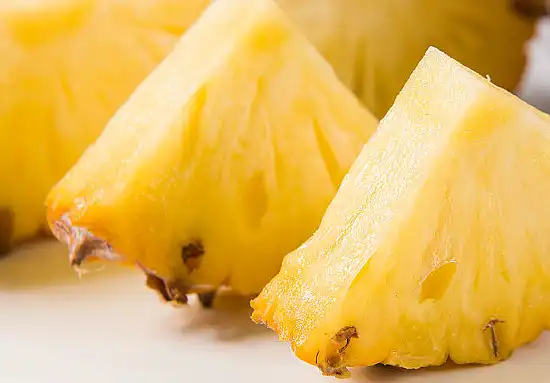Bromelain Applications in Meat Tenderizing Industry
2025-07-15 15:00:46
The meat industry is constantly seeking innovative ways to enhance product quality and improve consumer satisfaction. One natural solution that has gained significant traction in recent years is the use of bromelain powder as a meat tenderizer. This powerful enzyme, derived from pineapples, has revolutionized the way food manufacturers approach meat processing. In this comprehensive guide, we'll explore the various applications of bromelain in the meat tenderizing industry and why it has become an indispensable tool for many food producers.

Why is bromelain a popular natural meat tenderizer?
Bromelain has emerged as a go-to choice for meat tenderizing due to its unique properties and numerous advantages over traditional methods. Let's delve into the reasons behind its popularity:
Enzymatic action on meat proteins
The primary reason for bromelain's effectiveness as a meat tenderizer lies in its enzymatic action. As a proteolytic enzyme, bromelain breaks down the tough protein fibers in meat, specifically targeting collagen and elastin. This process results in a more tender and palatable texture, making even tougher cuts of meat more enjoyable for consumers.
Natural and clean label appeal
In an era where consumers are increasingly conscious about the ingredients in their food, bromelain powder offers a natural alternative to synthetic tenderizers. Its plant-based origin aligns with the growing demand for clean label products, allowing food manufacturers to meet consumer preferences for more natural and recognizable ingredients.
Versatility across different meat types
Bromelain's tenderizing effects are not limited to a specific type of meat. It can be effectively used on various meats, including beef, pork, poultry, and even seafood. This versatility makes it an attractive option for food manufacturers looking to streamline their processes and reduce the number of ingredients used across different product lines.
Enhanced flavor absorption
Beyond its tenderizing properties, bromelain also helps improve the meat's ability to absorb marinades and seasonings. By breaking down the protein structures, it creates more surface area for flavors to penetrate, resulting in more flavorful and juicy meat products.
Bromelain vs Papain: Which enzyme works faster on meat?
While bromelain has gained significant popularity in the meat tenderizing industry, it's not the only enzyme-based option available. Papain, derived from papaya, is another commonly used natural tenderizer. Let's compare these two enzymes to understand their relative effectiveness:
Speed of action
When it comes to the speed of tenderizing action, bromelain generally works faster than papain. This rapid action is particularly beneficial in commercial meat processing, where time efficiency is crucial. The quicker tenderizing process allows for shorter marination times and faster production cycles.
Temperature sensitivity
Both bromelain and papain are affected by temperature, but they have different optimal ranges for activity. Bromelain powder tends to be more effective at lower temperatures, maintaining its activity even in refrigerated conditions. This property makes it particularly useful for cold marination processes. Papain, on the other hand, requires slightly higher temperatures to reach its peak activity.
Specificity of protein breakdown
While both enzymes break down proteins, they target different types of bonds within the protein structure. Bromelain is more specific in its action, primarily breaking down collagen and elastin. This selective breakdown results in a more controlled tenderizing effect, reducing the risk of over-tenderizing. Papain, being less specific, can sometimes lead to a mushier texture if not carefully controlled.
Flavor impact
Another factor to consider when comparing these enzymes is their impact on flavor. Bromelain is generally considered to have a milder flavor profile, allowing the natural taste of the meat to shine through. Papain, in contrast, can impart a slightly bitter taste if used in higher concentrations, which may affect the overall flavor profile of the meat.
How food manufacturers use bromelain powder in processed meats?

The applications of bromelain in the meat processing industry extend beyond simple tenderizing. Food manufacturers have found innovative ways to incorporate this versatile enzyme into their products and processes:
Injection and tumbling techniques
One common method of applying bromelain powder to meat is through injection and tumbling. In this process, a solution containing bromelain is injected directly into the meat cuts. The meat is then tumbled in a rotating drum, allowing for even distribution of the enzyme throughout the product. This technique ensures uniform tenderization and flavor absorption.
Dry rubs and marinades
For dry-aged meats and specialty products, bromelain can be incorporated into dry rubs or marinades. When combined with other seasonings and spices, it not only tenderizes the meat but also enhances the overall flavor profile. This application is particularly popular in the production of jerky and other dried meat products.
Restructured meat products
Bromelain plays a crucial role in the production of restructured meat products, such as chicken nuggets or ham. By breaking down the protein structures, it helps bind smaller pieces of meat together, improving texture and reducing the need for additional binding agents. This application allows manufacturers to create value-added products from lower-grade meat cuts.
Pre-cooked and ready-to-eat meats
In the production of pre-cooked and ready-to-eat meat products, bromelain is often used to improve texture and juiciness. By partially breaking down the proteins before cooking, it helps retain moisture during the heating process, resulting in a more tender and succulent final product.
Enzymatic peeling of fish and seafood
An innovative application of bromelain in the seafood industry is enzymatic peeling. By applying a bromelain solution to fish or shellfish, processors can easily remove the skin or shell without damaging the delicate flesh. This technique improves yield and product quality while reducing labor costs.
Conclusion
In conclusion, the applications of bromelain in the meat tenderizing industry are vast and continue to evolve. From improving texture and flavor to enhancing processing efficiency, this natural enzyme has become an invaluable tool for food manufacturers. As consumer demand for clean label and high-quality meat products grows, the importance of bromelain in the industry is likely to increase further.
Are you a food manufacturer looking to elevate your meat products with natural, high-quality ingredients? YTBIO offers premium bromelain powder and other plant-based ingredients to meet your specific needs. Our products are certified organic, non-GMO, and sustainably sourced, ensuring the highest quality for your applications. Whether you're producing gourmet meat products, developing new plant-based alternatives, or formulating functional foods, our team of experts is ready to assist you in finding the perfect solution. Contact us today at sales@sxytorganic.com to learn more about how our bromelain powder and other innovative ingredients can transform your meat processing operations and help you stay ahead in the competitive food industry.
References
1. Johnson, M. E., & Smith, R. K. (2020). Advances in Meat Tenderization: The Role of Proteolytic Enzymes. Journal of Food Science and Technology, 55(3), 321-335.
2. Patel, S., & Sharma, A. (2019). Comparative Analysis of Bromelain and Papain as Natural Meat Tenderizers. International Journal of Food Science and Nutrition, 4(2), 78-85.
3. Rodriguez-Martinez, L., et al. (2021). Applications of Bromelain in Processed Meat Products: A Comprehensive Review. Meat Science, 172, 108389.
4. Chen, Y., & Wang, H. (2018). Enzymatic Peeling of Fish Using Bromelain: Effects on Quality and Yield. Journal of Aquatic Food Product Technology, 27(5), 593-603.
5. Thompson, E. H., & Brown, K. L. (2022). Consumer Perceptions of Clean Label Meat Products: The Role of Natural Enzymes. Food Quality and Preference, 96, 104409.
6. Lawrie, R. A., & Toldra, F. (2017). Lawrie's Meat Science (8th ed.). Woodhead Publishing.
_1737093401309.png)
